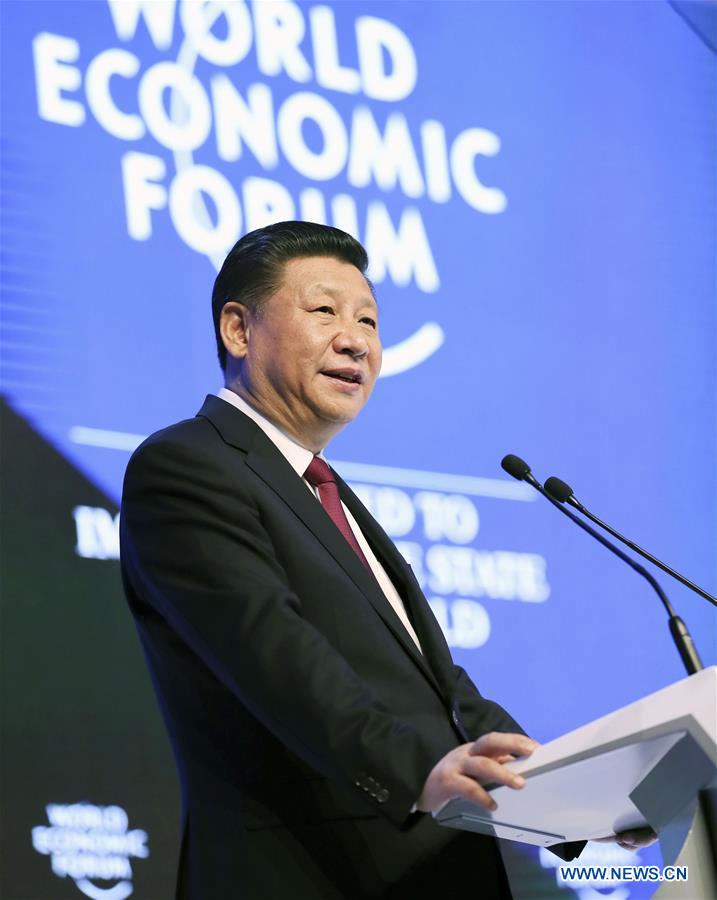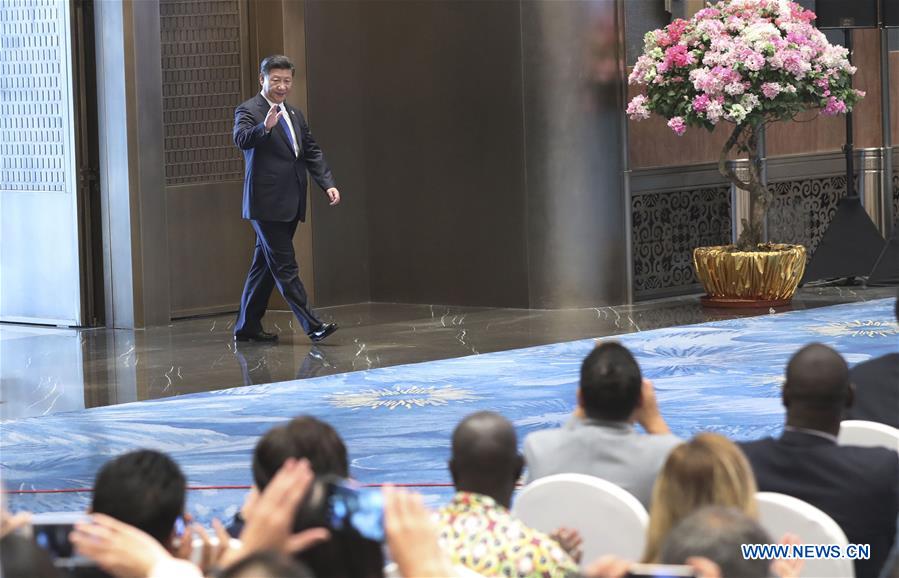Xi-style diplomacy brings China closer to world
Strengthening multilateralism

Xi's proposal to build a community with a shared future for mankind is a central pillar of multilateralism. The proposal shines light on China's diplomatic efforts over the past five years concerning individual states and regional and international organizations.
From the U.N. General Assembly, the World Economic Forum (WEF) in Davos, the Asia-Pacific Economic Cooperation leaders meetings, to the Group of 20 (G20) forum and the BRICS summit which embraces Brazil, Russia, India, China and South Africa, Xi has reaffirmed China's commitment to economic globalization, U.N.-led multilateralism and global peace.
Globalization is falsely blamed for a sluggish global economy, high unemployment, a rise in trade protectionism, populism and isolationism, terrorism, the refugee crisis in Europe and the Middle East and the widening gap between rich and poor.
"In the face of both opportunities and challenges of economic globalization, the right thing to do is to seize every opportunity, jointly meet challenges and chart the right course for economic globalization," Xi said in a keynote WEF speech in January.

He listed an innovation-driven growth, open and win-win cooperation, fairer governance as well as balanced and inclusive development as the way forward for the global economy. Multilateralism is the solution for global problems, and China has been a strong pillar of it.
Building a community with a shared future for mankind is embodied in the Belt and Road Initiative Xi proposed in 2013, which is aimed at building trade and infrastructure networks in countries along and beyond the ancient Silk Road trade routes.
Moreover, the initiative's projects involving new railways, roads, and industrial zones in Asia and Africa are aligned with the development strategies of many countries and are being hashed out with the United Nations 2030 sustainable development goals in mind. The Belt and Road Initiative is perhaps the greatest gift China has ever offered to the world.

Chinese President Xi Jinping meets the press at the end of the ninth BRICS summit in Xiamen, southeast China's Fujian Province, Sept. 5, 2017. [Photo/Xinhua]
"In an increasingly interdependent and integrated world where countries form a community of shared interests, openness, inclusiveness and win-win cooperation are the only viable option," Xi said at the Dialogue of Emerging Market and Developing Countries during the BRICS summit held in September in Xiamen, China.
"Multilateralism is the solution for the global problems, and China has been a strong pillar of multilateralism," U.N. Secretary-General Antonio Guterres said. His predecessor Ban Ki-moon has called China "an indispensable partner for the U.N.'s agenda."
China's continued support for the Paris climate change accord after the U.S. withdrawal and its significant contributions to U.N. peacekeeping missions are also among its efforts to make the world a better place.